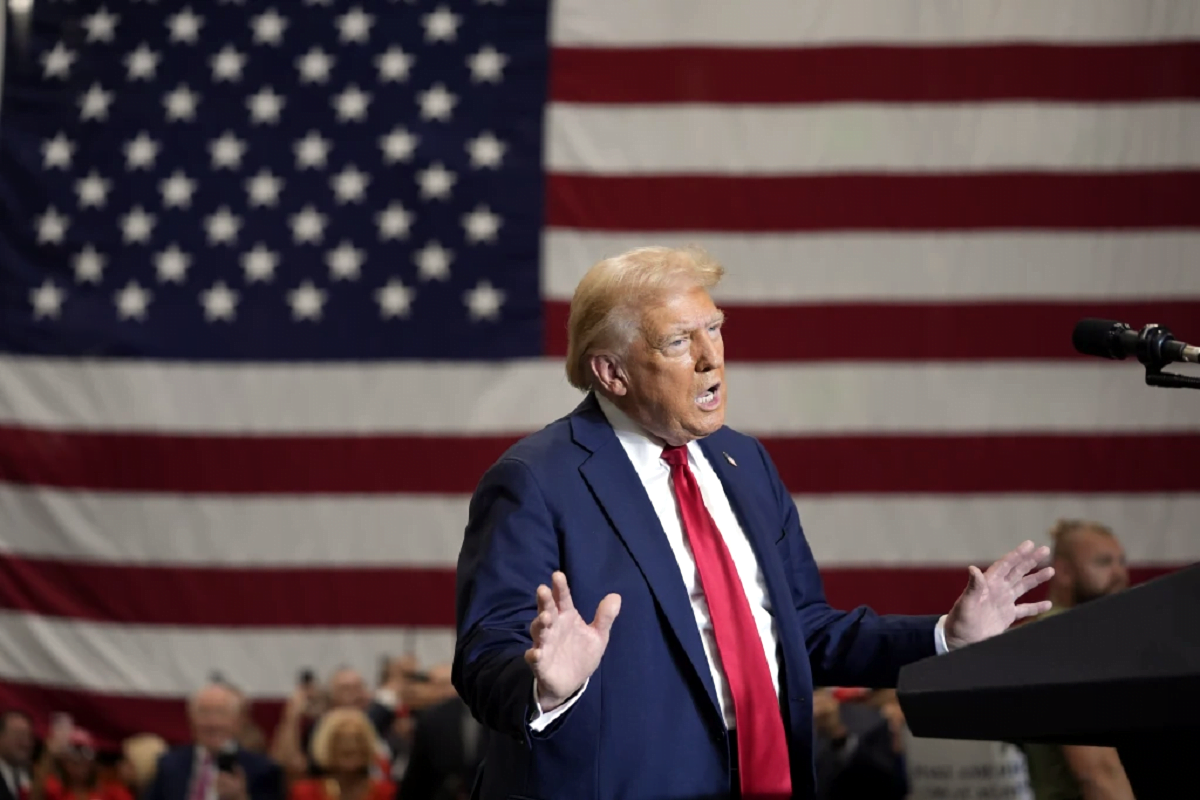NEW YORK— On Thursday, some justices in an appeals court in New York were open to the possibility of overturning or decreasing a civil fraud judgment that could cost Donald Trump around $500 million. A court referred to the former president’s punishment as “troubling” and questioned whether the state was using “deterrence” or “mission creep” in its monitoring of private economic dealings.

During oral arguments in his attempt to have the verdict from February 16 overturned, Trump’s legal team and the New York attorney general’s office were questioned by a five-judge panel at the state’s intermediate appeals court in Manhattan.
The justices also seemed doubtful of Trump’s viewpoint at times. Judges on appeals courts frequently challenge the arguments of both parties by asking pointed questions.
To close transactions and obtain loans, Trump misled banks, insurers, and other parties about his wealth for years, and he is now requesting that the court overturn Judge Arthur Engoron’s decision. The decision severely damaged Trump’s image as a successful businessman. To change the result, three of the five judges who heard the arguments on Thursday must concur.
A decision might be made before election day.
In the past, Trump has claimed that Engoron is punishing him for “having built a perfect company” and criticized the lawsuit’s outcome as “election interference.”
Decisions from the Appellate Division, the appeals court, are usually rendered approximately one month following arguments, which means they may be made before November 5, Election Day. It could sustain, modify, or reverse the trial’s decision.
Attorney General Letitia James’ case, according to Trump’s attorney D. John Sauer, stretched the state’s consumer protection statutes by bringing the government into situations where there were “no victims” and “no complaints.”
Trump engaged in commercial dealings with “sophisticated counterparties” who conducted independent research instead of depending exclusively on Trump’s financial declarations, which Engoron claimed greatly overstated his wealth.
According to Sauer, there has been a blatant disregard for the statute of limitations in this case. A few “loans which closed long ago” were implicated in the case, according to Judge Linét Rosado.
According to Sauer, “people can’t do business in real estate” if the verdict is upheld because they would have to worry about facing the same level of scrutiny.
Judges and attorneys spar over the repercussions.
In response, Judith Vale, the deputy solicitor general for the state, stated that “there was absolutely a public impact and a public interest here,” pointing out that lenders like Deutsche Bank took unnecessary risk because of Trump’s claims.
Judge Peter H. Moulton, however, questioned whether James’ agency was “mission creeping” and whether the statute under which she was suing Trump had “morphed into something that it was not meant to do.” However, Moulton contended that the lawsuit and similar efforts would discourage such actions in the future, citing the possibility that “some deal might not go down well, and someone would be harmed by that.”
Judge David Friedman distinguished Trump’s case from prior legal cases where business acts caused injury to significant numbers of people. One resulted from Lehman Brothers’ 2008 financial collapse, while another concerned customer taking out unaffordable house loans.
“It hardly seems like enough to warrant taking legal action against Trump,” stated Friedman. “There’s nothing like that here.”
Inquiring as to whether the appeals court ought to take into account “guardrails” to stop James from “going into an area that wasn’t intended for her jurisdiction,” Judge John Higgitt
Later on, Moulton asked Vale about the heavy sentence Engoron received, noting that “the immense penalty in this case is troubling.”
According to the law, the judge might effectively seize any profits that Trump made from transactions that were based on his exaggerated financial statements, according to Vale. Rewards from the sale of assets, such as his hotel in Washington, D.C., and savings from lowered loan interest rates were among the rewards.
“It is not an excuse to say, ‘Well, our fraud was successful, so we should get some of the money,'” countered Vale. “That is an enormous benefit that they got from the misconduct.”
The state contends that the decision is well supported by the evidence and that portions of Trump’s appeal are predicated on points that Engoron and the Appellate Division have previously dismissed.
Penalties and values both skyrocketed.
Former Missouri solicitor general Sauer previously represented Trump in the U.S. Supreme Court in his victorious presidential immunity case.
Following a two-and-a-half-month trial, Engoron’s verdict revealed that Trump had overvalued a number of properties, including his golf courses, hotels, Mar-a-Lago residence in Florida, and the penthouse at Trump Tower in Manhattan, in order to inflate his net worth by several billion dollars on yearly financial statements.
In addition, Trump and his co-defendants are contesting Engoron’s ruling that the state had established Trump’s false financial statement inflation even before the trial had started. With interest, the amount that the judge ordered Trump and the other defendants to pay in penalties has now exceeded $489 million. The fines totaled $363.9 million.
In order to stop the judgment from being collected and stop the state from taking his assets while he files an appeal, Trump posted a $175 million bond in April. If the decision is upheld, the bond ensures payment. Trump will receive his money back if he wins.
If one party is unhappy with the decision, it may request that the Court of Appeals, the state’s highest court, take up the issue. If required, Trump has pledged to challenge the decision “up to the U.S. Supreme Court.”